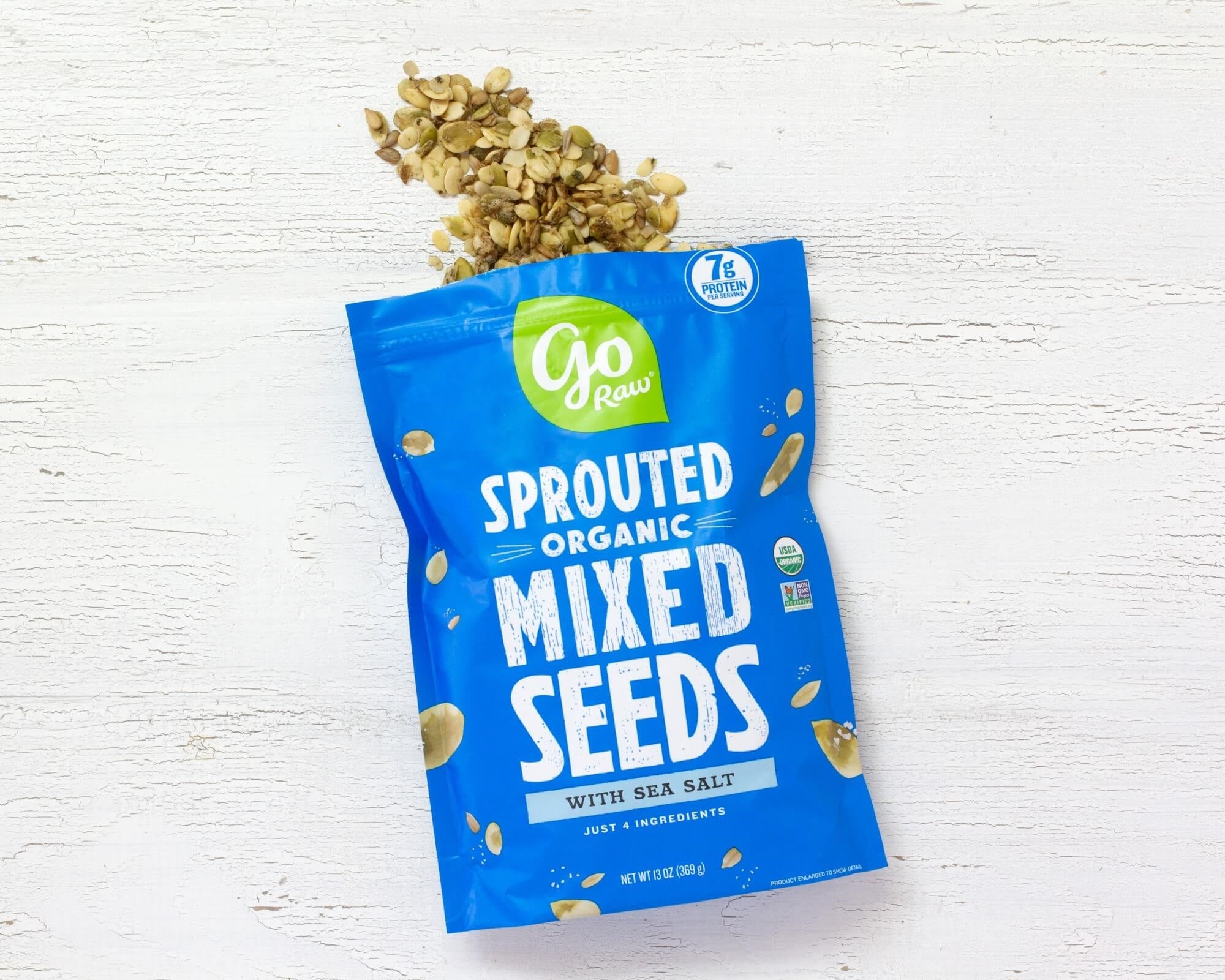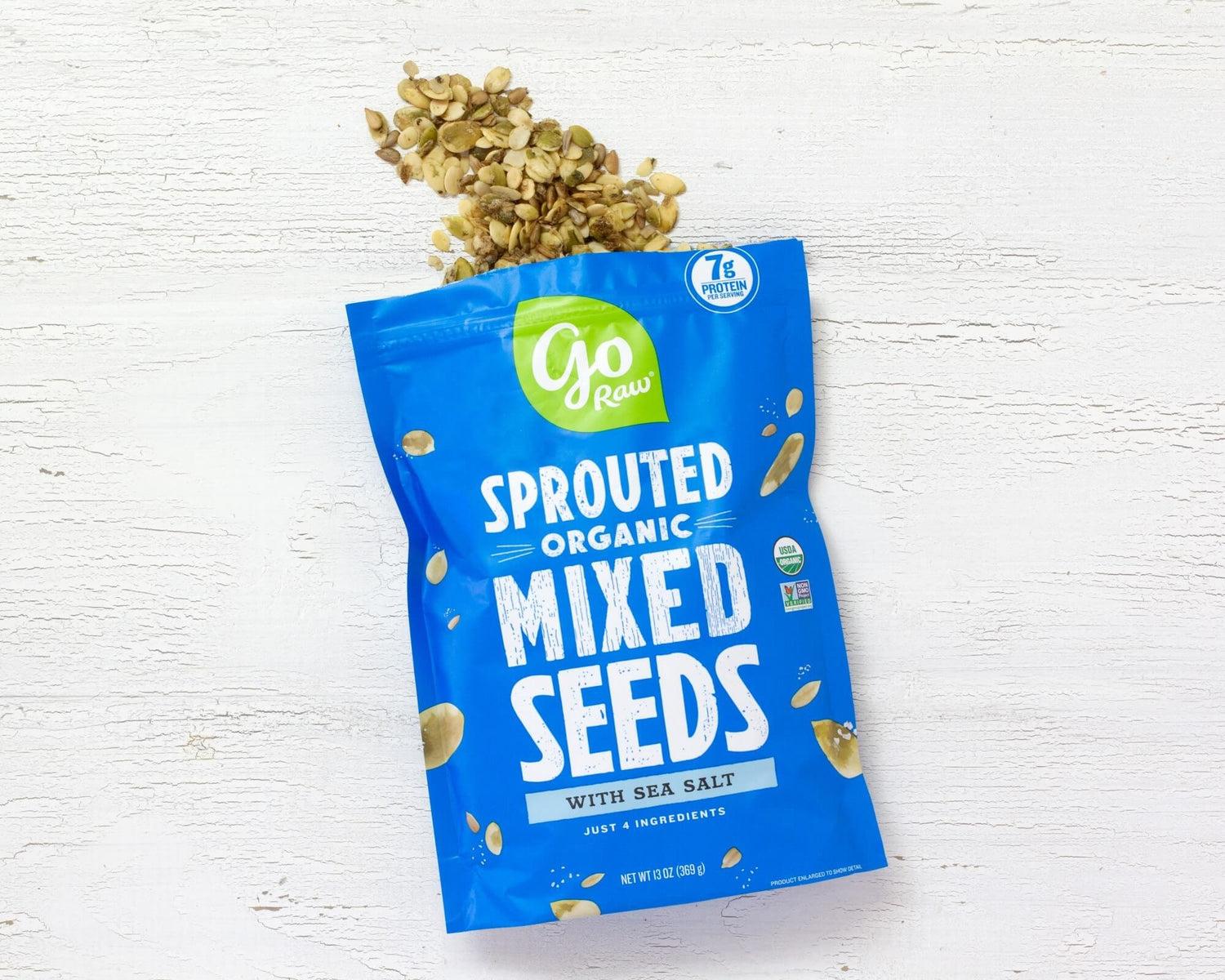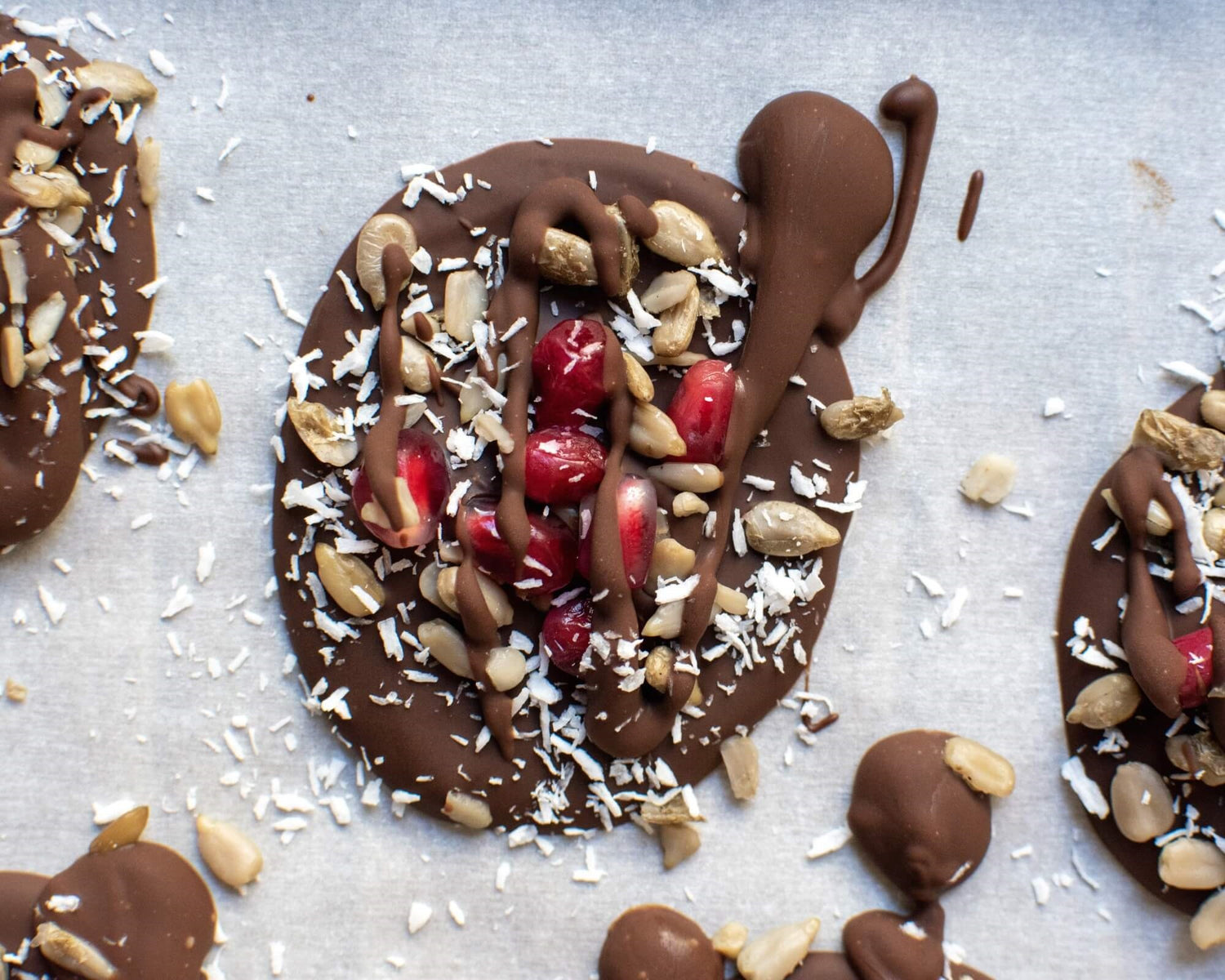If you have food allergies or digestive issues, you know how difficult it is to find foods that are both palatable and gut friendly. But even if you don't have known issues with your digestive tract, keeping your gut healthy is fundamental to your current and future health.
Why does gut health matter? A healthy gut is closely tied to other systems in your body, including your immune system and even brain health. The tiny gut microorganisms that live in your gut, called the gut microbiome, live or die based on what you eat. They thrive on a type of fiber called prebiotic fiber that comes from plant-based sources. When you feed your gut microbes well, the beneficial bacteria flourish and you enjoy better digestive health.
One type of gut-friendly food you may not have explored yet is sprouted foods, including sprouted seeds. Why sprouted seeds? Seeds are among the most nutrient dense foods, and sprouted ones keep your gut and its ecosystem, called the gut microbiome, healthy. They also supply your body with nutrients in an easily digestible form. Let's look at why sprouted seeds are your body and gut's best friend.
Sprouted Seeds Are Easier to Digest
Welcome to the world of germination! When a seed germinates, it releases enzymes that break carbohydrates down into smaller molecules your body can digest more easily. The starch becomes sugar your body can absorb with less effort. Germination also makes digesting proteins and fats easier. Therefore, your body doesn't have to work as hard to break down and absorb what you eat.
Have you ever had digestive issues, like gas and bloating after eating bread made from unsprouted grains? No one enjoys that uncomfortable feeling of their pants being too tight! You might be surprised to find that sprouted seeds don't cause the bloating that unsprouted seeds sometimes do. With sprouting, you get back to enjoying a handful of seeds again with fewer digestive issues.
Sprouting reduces the gluten content of grains.1 However, seeds are already gluten free and safe if you have gluten sensitivity. Sprouted ones are an easily digestible snack you can enjoy any time hunger strikes.
Sprouted Seeds Nourish Healthy Gut Bacteria
There's so much focus on keeping a healthy gut microbiome or ecosystem, but you have to feed those tiny gut bacteria the right food to keep them and your insides healthy. Their preferred meal is fiber, a dietary component most people don't get enough of. Sprouted seeds offer a fiber boost in combination with vitamins and minerals your body needs for optimal health.
Did you know that sprouting a grain increases the amount of fiber available to your digestive tract and your gut bacteria? A study found that sprouting wheat tripled the amount of soluble fiber in wheat. Beyond the digestive tract, soluble fiber is also linked with heart health. Plus, most people only get about half the recommended amount of fiber daily. Sprouted seeds help you meet your fiber requirements and keep your gut bacteria happy.
Sprouted Seeds Are Easier on Your Blood Sugar
With so many people with diabetes and even more with prediabetes, eating a diet that's easy on your blood sugar is important for your health now and later. Some seeds are already low in carbohydrates, the quantity varies, but sprouting can further lower their carb content. Sprouting breaks down some of the starch in seeds, so there are fewer carbohydrates available to raise your blood sugar.2, 3
Switching to sprouted seeds can help diabetics and healthy people reduce blood sugar spikes. One measure of how quickly a food raises blood sugar is called the glycemic index. A study in Functional Foods for the Prevention and Treatment of Chronic Diseases found that sprouted seeds are effective blood sugar regulators.4 Give your pancreas a break by eating more sprouted foods.
Sprouted Seeds Are More Nutritious
One reason you eat is to supply your body with nutrients. Unfortunately, the typical diet these days is high in sugar and calories, and low in nutrients. Adding sprouted seeds to your plate will help you tap into more nutrients. Sprouting changes the nutritional content of seeds. One way it does this is by opening up the outer casing, so the nutrients become more available to your body. In contrast, with an unsprouted seed, a barrier still encases the nutrients, making them harder for your body to access. Sprouting breaks down this barrier for better nutrient access.
Sprouting also reduces anti-nutrients, natural compounds in plants, including whole grains, that make it harder to absorb nutrients like calcium, iron, and zinc. Nutrients have a clearer path from your digestive tract to your bloodstream when you eat sprouted seeds, because you absorb them better.
Sprouting foods, including grains, seeds, and beans, increases the nutrient content of the food. For example, studies show that higher levels of folate in some sprouted foods.5 Folate is a B-vitamin critical for healthy cell function. Plus, pregnant women need more folate to protect their growing baby against a certain type of birth defect. So, sprouting gives your plate a nutrient boost. Sprouting may also increase the amount of other B-vitamins in seeds and other sprouted foods. The degree to which this happens depends on sprouting conditions.
Enjoy Sprouted Seeds
There are so many reasons to love sprouted seeds and give them a prominent place in your diet. They're easier to digest, and the nutrients they contain are more available to your body. Plus, they're easier on your blood sugar because sprouting lowers their carbohydrate content. You're also feeding your gut the fiber your gut bacteria want and need. So, nurture your digestive tract right and add more sprouted seeds to your plate. They're a satisfying snack by themselves, but you can also add them to salads, wraps, and soups. Enjoy their taste and health benefits!
1. Journal of Agriculture and Food Chemistry, June 13, 2007; 55(12):4678-83. Epub 2007 May 12.↩
2. Mofidi A, Ferraro ZM, Stewart KA, Tulk HM, Robinson LE, Duncan AM, Graham TE. The acute impact of ingestion of sourdough and whole-grain breads on blood glucose, insulin, and incretins in overweight and obese men.↩
3. J Nutr Metab. 2012;2012:184710. doi: 10.1155/2012/184710. Epub 2012 Feb 28. PMID: 22474577; PMCID: PMC3317179.↩
4. Pathak, Manju. (2010). Germinating Seeds: Sprouts as an effective blood sugar regulators. Functional Foods for the Prevention and Treatment of Chronic Diseases. 5. 146-162. ↩
5. The Journal of Agriculture and Food Chemistry, December 13, 2006; 54(25):9522-8. ↩






2 comments
What are your bags made of—are they compostable —can they be recycled.
Can’t find any information of what your packaging is made with.
I live near St Louis Missouri. Is there a store that carrys your products here?